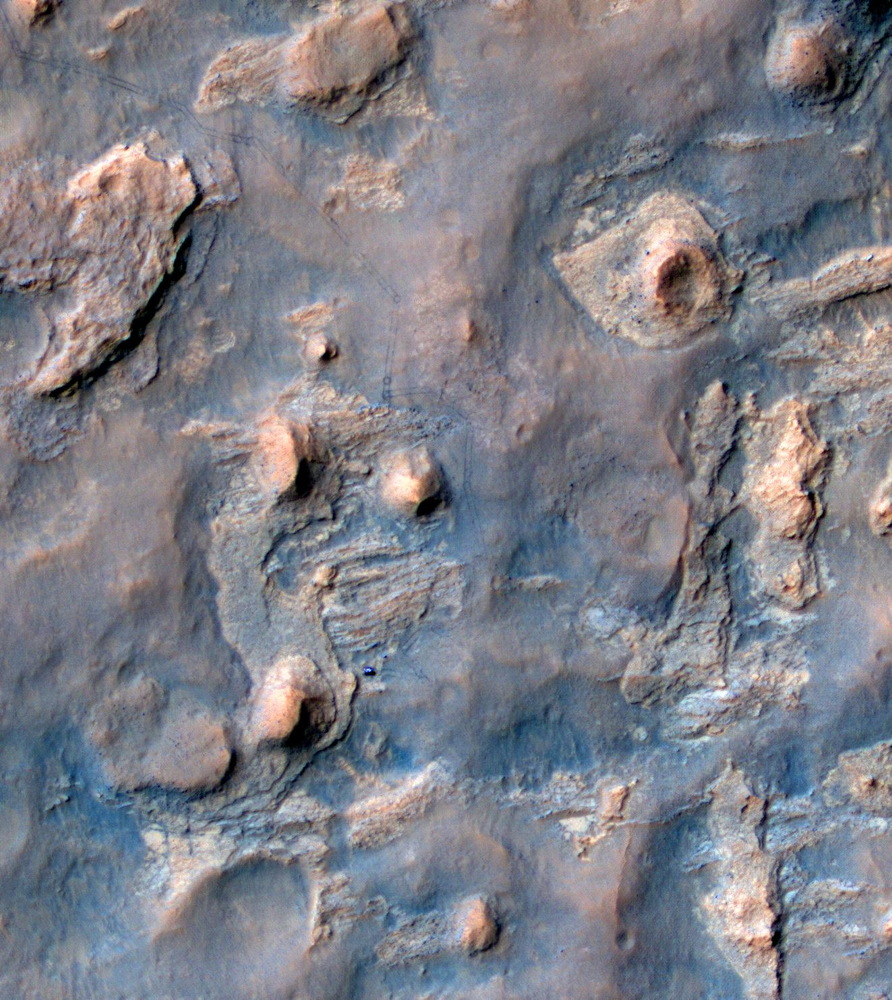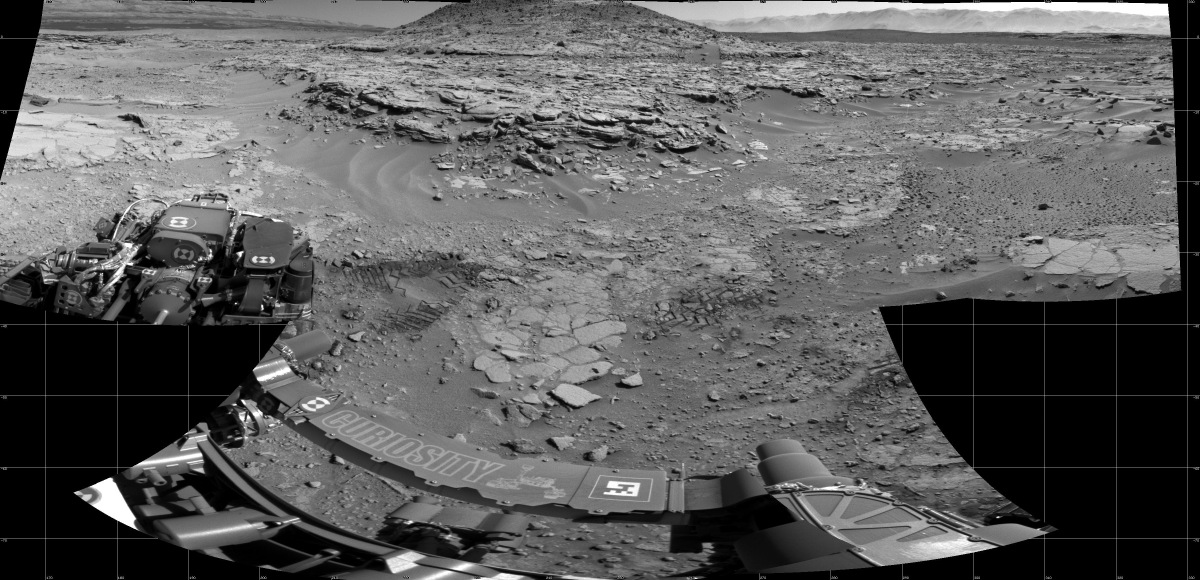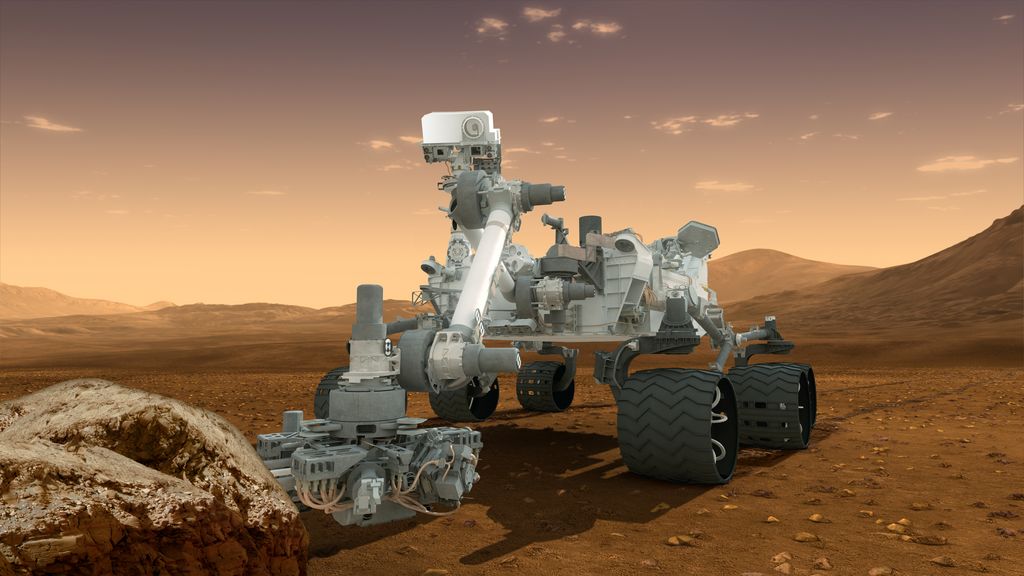NASA Spacecraft Spies Mars Rover Curiosity at 'Mount Remarkable' from Space (Photos)

A spacecraft circling the Red Planet has spotted NASA's Mars rover Curiosity hard at work on the Martian surface.
This image was captured April 11 by the High Resolution Imaging Science Experiment (HiRISE) camera on NASA's Mars Reconnaissance Orbiter.
With faint tracks from its six metal wheels trailing behind, Curiosity appears as a bright blue speck in the two o'clock position relative to a large outcropping called "Mount Remarkable" in the lower left portion of the image.

Curiosity is currently eyeing this 16-foot-tall (5 meters) butte as a possible candidate for further investigation, NASA officials said. If the rock formation looks interesting to scientists, the rover may use its robotic instruments to pull a dirt sample from the layer surrounding the base of Mount Remarkable.
The rover touched down inside Mars' Gale Crater in August 2012, charged with the task of finding out whether Mars is, or ever was, suitable for life. Curiosity has already found evidence that Mars once had the right conditions to support ancient microbial life, through an analysis of dirt samples drilled at a Martian location called Yellowknife Bay, near the rover's landing site.
Mount Remarkable is puny compared with Curiosity's ultimate science destination: Mount Sharp, a towering 3.4-mile-high (5.5 kilometers) Martian mountain. In the foothills of Mount Sharp, the rover is supposed look for a record of the Red Planet's changing environmental conditions, which could help scientists better understand how and why Mars transformed from a relatively warm and wet place billions of years ago to the cold, barren world it is today.
Get the Space.com Newsletter
Breaking space news, the latest updates on rocket launches, skywatching events and more!
Follow Megan Gannon on Twitter and Google+. Follow us @SPACEdotcom, Facebook or Google+. Originally published on Space.com.

Join our Space Forums to keep talking space on the latest missions, night sky and more! And if you have a news tip, correction or comment, let us know at: community@space.com.

Megan has been writing for Live Science and Space.com since 2012. Her interests range from archaeology to space exploration, and she has a bachelor's degree in English and art history from New York University. Megan spent two years as a reporter on the national desk at NewsCore. She has watched dinosaur auctions, witnessed rocket launches, licked ancient pottery sherds in Cyprus and flown in zero gravity on a Zero Gravity Corp. to follow students sparking weightless fires for science. Follow her on Twitter for her latest project.
